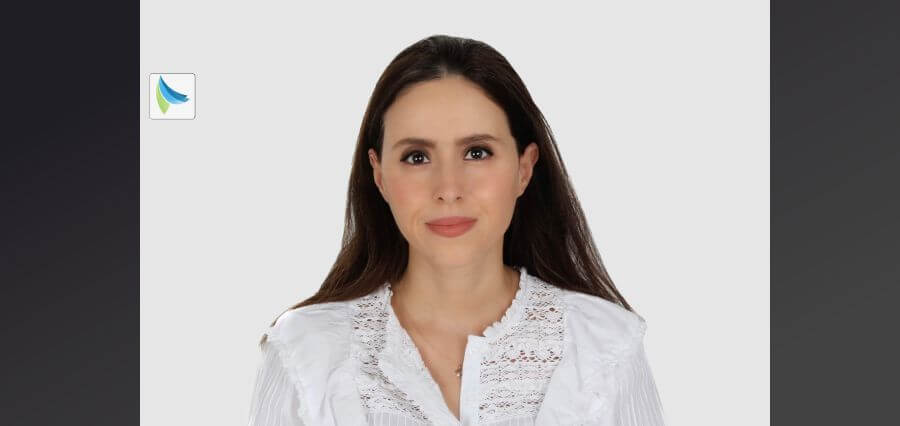All about my career path: As I am very curious by nature and appreciate new challenges, I have worked for over 14 years in several different sectors, such as consulting, fashion retail, food and beverage, media, and finally, education.
After immersing myself in my EMBA, where I had the chance to carry out several global learning trips over two years, I was able to immerse myself by getting to know several nationalities of students across several cultures mingle. I had the impulse to wish to work in this environment.
Passionate about lifelong learning, I have dedicated my career over the last 8 years to the education sector.
As a Senior Education consultant, I have worked with several stakeholders on projects in Higher Education, Educational Foundations and corporate learning programs across the international scope with a wide range of international experience in the Education sector.
Throughout my professional career, I have leveraged expertise to develop and implement effective strategies that optimize educational offerings, enhance operational efficiency, and foster growth and innovation in the education sector.
Successfully forged strategic partnerships with international educational institutions and government entities, resulting in collaborative initiatives and increased program offerings.
Currently, I work with Project Set as a Sustainable Innovation Manager | Academic Partnerships Specialist on effective academic challenge program strategies across innovation entrepreneurship plot initiatives, using sustainability environment projects such as climate literacy training and the UN SDG Goals challenge program.
By partnering with academic institutions and stakeholders to encourage the schools and universities to embed the SDGS strategies in their approach and institutional DNA to educators and schools on how to make an impact on climate change in their youth communities.
ProjectSet empowering youth in the future workplace to enhance employability:
It operates an online platform that connects university students, employers and educators to collaborate on virtual internships, hackathons or uni course projects. Students can build their CV and digital portfolio while learning crucial soft skills to improve their employability.
Modern-day technology offers us a unique opportunity to help students gain potentially life-changing workplace skills, and employers find valuable project support and talent.
ProjectSet uses its proven and distinctive project-based, part-time engagement model to drive scale, inclusivity and impact in these programs.
Its London-based team is working on several innovative initiatives to make work-integrated learning programs and workplace skills truly ubiquitous and impactful in the world of graduate talent.
The importance of the work-integrated learning and workplace skills model dedicated to the next youth generation: Work-integrated learning (WIL) is a learning development program that’s specifically integrated into the degree curriculum students and which counts towards their final qualification. WLT aims to help students gain a good grasp of basic work capabilities and a plethora of both soft and technical skills that they wouldn’t necessarily develop without working in a professional setting. It’s a milestone initiative which collaborates and liaises with businesses to set up bespoke job roles specifically for students, which enables them to gain invaluable workplace experience and apply what they’ve learnt in their studies to the job.
Current research has demonstrated that students who have been prepared for an academic transition to the job market through professional immersion achieve immediate effects and are equipped with work skills; indeed, students who undertake professional internships and work-integrated learning extensions as part of their studies systematically obtain better employment results.
Nowadays, we are talking about a new education model to empower business students within the school of business, an incubation center of internships and externships to prepare talented graduates for future jobs.
In terms of work-integrated learning expectations, this can take shape in different aspects; I can outline some examples below:
Co-operative Education: consists of paid work terms that alternate between academic terms.
Entrepreneurship: Mentorship, space, and/or funding is provided to engage students in the early-stage development of business start-ups either for academic credit or through a venture program directed with strong foundational business theory to set students up for success as entrepreneurs or corporate innovators.
Field Placement| Externship: Short-term, practical activities outside of the classroom in a setting relevant to the student’s academic discipline, offering intensive practical skills development.
Competition and extracurricular activities: Competitive events such as case competitions, skills boot camps and hackathons focused on team-based learning in which teams work on industry-provided projects over a short period of time, such as a weekend or a week.
Gender equality and its challenges in the work industry (the education landscape):
We are talking about education for all, accessible to all genders without distinction. Major Academic labels such as (EQUIS, EFMD, AACSB, AMBA), and ranking educational institutes (QS ranking, Times Higher Education, Financial Times) are among the criteria for obtaining accreditation of diploma courses; it is required to enrol students of multicultural female and male gender from different nationalities, which therefore makes the richness of the diploma program and the sharing of heterogeneous experiences from different educational backgrounds and cultures.
This is no longer the case today; we see more and more women joining long-term diploma courses that require sophisticated technicality and skills; in fact, several renowned higher education institutes are setting up a system of scholarships and referral programs to attract more and more women to join the EMBA.
The SDGS goals challenge program mandated by the UN across 2030 came to strengthen gender equity and the transformation of education for better quality with a focus on SDG GOAL 4. UNESCO has therefore identified a gender equity gap in the workplace where salaries do not always follow between men and women even if they have the same skills. My most challenging experience has been working with young students who demonstrate many traits of a closed mindset and transform their approach into a growth mindset.


